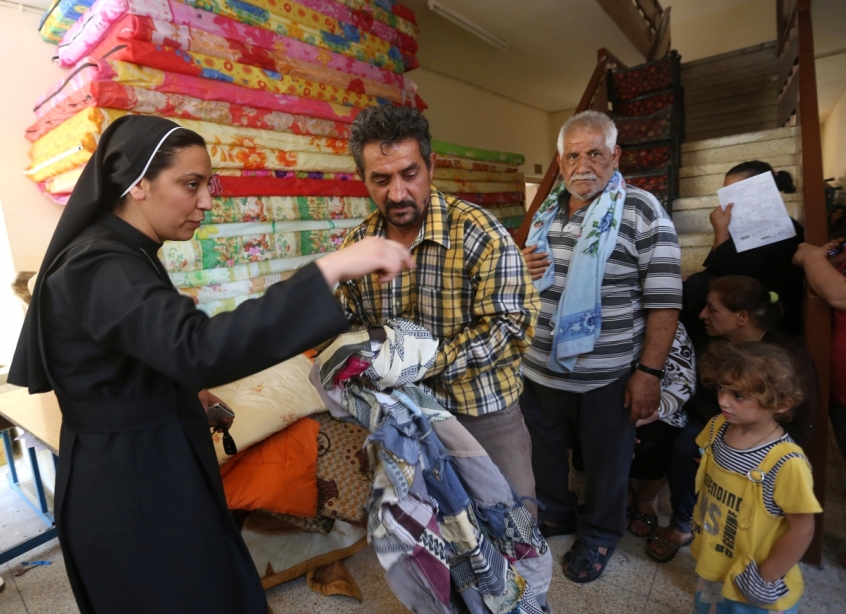
As many as 10,000 people have fled from predominantly Christian areas in northern Iraq, the UN refugee warned on Friday.
UNHCR said they were leaving the largely Christian communities of Qaraqosh after mortar rounds landed close to the historic Assyrian town earlier this week.
Many of those who have fled are women and children who are now staying with relatives or in schools and community centres in Erbil.
Many made a quick exit from Qaraqosh, taking only a few belongings with them.
UNHCR has distributed quilts, mattresses, plastic sheeting and hygiene kits to those sheltering at the schools and community centres.
Local charities and international aid agencies are providing food but there is concern about the lack of medical care available.
UNHCR warned that the fresh influx has put pressure on resources as the Kurdistan region has already received around 300,000 Iraqis from Mosul's Ninewa governorate.
"Conditions for these new arrivals will be challenging," the agency said.
"They have no access to showers and there is no air conditioning. They are living in classrooms where daytime temperatures exceed 40 degrees Celsius."
UNHCR said a total of 1.2 million Iraqis have left their homes as a result of fighting and only 8 per cent of the $64.2m needed to assist them has been raised.
The warning came on the same day as Human Rights Watch released satellite images claiming to show the site where at least 160 captives were executed by ISIS militants.
HRW says between 160 and 190 men were killed in two locations in the northern city of Tikrit between 11 and 14 June.
"The number of victims may well be much higher, but the difficulty of locating bodies and accessing the area has prevented a full investigation," the group said.
Peter Bouckaert, emergencies director at Human Rights Watch, said the photos and satellite images "provide strong evidence of a horrible war crime that needs further investigation".













